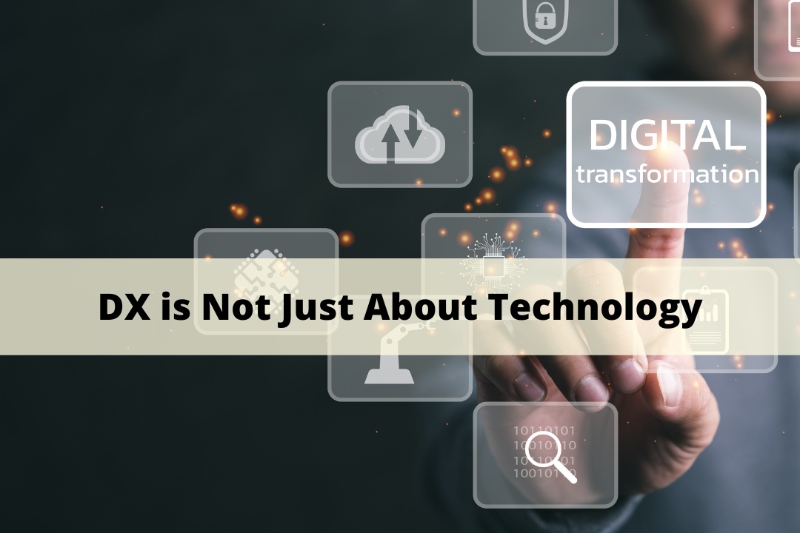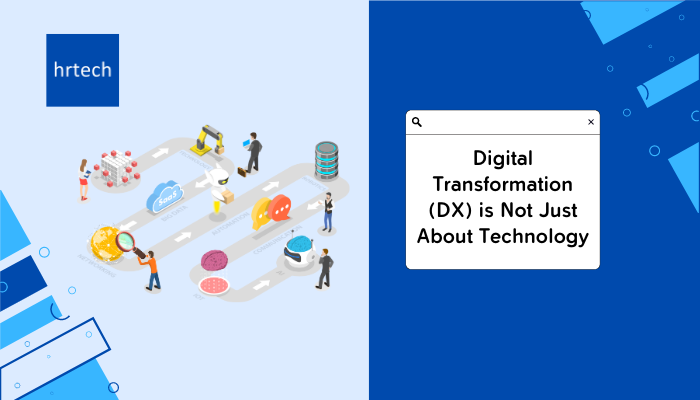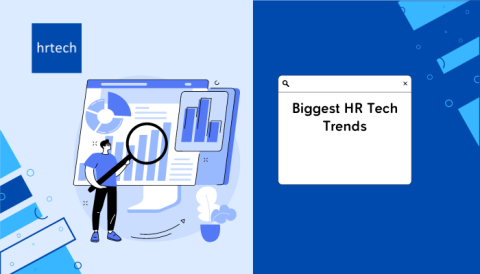HR leaders have a challenging yet exciting road ahead. People are real drivers of digital transformation. HR teams can embrace technology and digital platforms to transform HR operations as well as the work culture and employee experience.

Technology has truly transformed the way businesses operate. It has made possible what was considered unthinkable. Organisations are reimagining business processes and employee experiences with an eye on Digital Transformation. Moreover, the COVID-19 pandemic has accelerated the need for organisations to digitize their business for better efficiency, growth and productivity.
The People Function is believed to be equally crucial in supporting an organisation’s digital transformation journey as the HR world itself is significantly impacted by technology. The HR function is being rightly pushed to take on larger roles in helping organisations prosper in the digital transformation journey.
What is Digital Transformation
- Digital transformation is the integration of technology and tools into business processes to make them efficient, cost-effective and impactful. It helps redefine the culture, employee experience and business processes to meet the evolving market and business requirements.
- Digital transformation doesn’t necessarily mean huge technology investments. The journey starts with a small step of automation, evolving with digitisation and digitalisation. The HR functions are aligned with digital strategies to contribute to the organisation-wide transformation.
HR – A Strategic Function
The key transformation that the world has witnessed is the evolution of HR into a strategic business function. As the HR world embraced technology, many operational processes have become automated and data-driven. This has helped HR leaders focus more on strategies to transform employee experiences, wellbeing and productivity.
Digital Transformation is Not Just About Technology
Digital Transformation journey for any organisation becomes successful when it is based on a strategic planning coupled with the right mindset, skills and processes. Essentially, people drive the cultural, organizational and operational change for a business, technology just assists them. There are no second thoughts about the importance and role of technology in driving organisation-wise digital transformation, however, it is people who plan, strategize and execute it.
As mentioned earlier, the People Function is in the spotlight to enable business to drive digital transformation and thus, it is rightly said that digital transformation is not just about using expensive technology but goes well beyond that. It is about having the right people with the right MINDSET, SKILLS and PROCESSES that help in improving business efficiency.
Creating a Digital Mindset
All great initiatives start with a seed of thought and the right mindset. Similarly, when embarking on the digital transformation journey and making it successful, organisations first need to focus on changing the mindset of their employees.
A technological shift not supported by a desired cultural and mindset shift can very easily put the digital transformation initiatives at risk. Thus, Digital Mindset can be referred to as having a set of attitudes that enables people to perceive possibilities by leveraging technology. An individual with a digital mindset understands how technology can enhance the business processes and improve overall productivity.
Building Digital HR Skills
Innovation and technology has empowered HR leaders to contribute to the organisational growth strategies and influence the culture and employee experience. With the help of digital tools, they can automate various tasks and focus more on strategic and design thinking.
That being said, digital transformation has also brought with it the need to learn and develop new sets of HR skills for the future. Numerous researches have zeroed on key competencies that future HR leaders must master to successfully drive digital transformation in the workplace which include analytical thinking, being data-driven for decision making, business acumen to understand and support business, being able to drive human- centered process redesign etc.
Reimagining Processes
Digital transformation calls for innovation and out-of-the-box thinking. With the advent of tools and technology, the traditional approach to business processes is futile. Businesses need to revamp and reimagine their processes to edge ahead of their competition.
For organisations planning to embark on a digital transformation journey, Digital Transformation in the business context can be applied to transform diverse and wide areas such as functions, assets, ecosystems, models and culture.
It becomes vital for organisations to ensure that the business and HR strategies are well aligned with the digital transformation vision. Stitching together the business values and rich employee experiences will make the digital shift easy and effective.
Leveraging HR Technology
Better the employee experience, better is the employee performance. Today, employee productivity and motivation is majorly dictated by how they feel about their work and workplace. Delivering a satisfying experience throughout the employee life cycle is crucial for business growth. HR technology applications prove to be a vital cog in enhancing the employee experience.
Final Word
HR leaders have a challenging yet exciting road ahead. People are real drivers of digital transformation. HR teams can embrace technology and digital platforms to transform HR operations as well as the work culture and employee experience. This will prove to be a game changer. Strategic use of technology will help HR teams to create a positive impact on business results.
How employees embrace the digital transformation vision and interact with technology will dictate the digital success of the organisation. Afterall, Digital Transformation is not just about technology, it is about people.
About the author :

Swechha Mohapatra (IHRP-CP, Associate CIPD) is Head of Consulting & Delivery at hrtech.sg and has more than 9 years of global experience in various Talent functions. She is a passionate HRTech evangelist, a member of IHRP HRTech CoP Taskforce, and an avid learner who is certified Six Sigma-Green Belt with a background of MBA (Specialization in HR and IT) and Master’s in Labor Laws and Labor Welfare.





